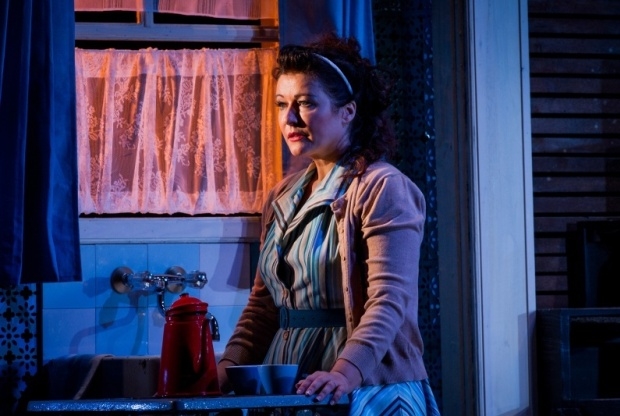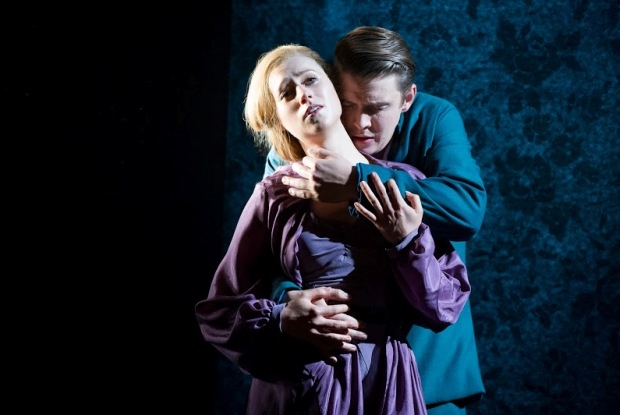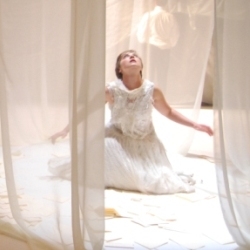Werther (English Touring Opera – tour)

© Robert Workman
But salon music it has now become, in English Touring Opera's miniaturised English-language production. Misconceived on pretty much every level, here's a pocket Werther that confines its ambitions to the kitchen sink.
To be fair, Iain Farrington's reduction for piano, violin, cello and clarinet is very attractive on its own terms, and under his own direction it's immaculately played. But it reduces Massenet's ardent score to a dusting of sweetness. You can imagine enjoying a nice high tea while listening to it.
Although Werther himself was written for a tenor, in 1902 Massenet tweaked the role so it could be sung, without modification to the scoring, by a baritone. Musically it works, but it means the opera's high-wire vocal thrills are neutered. This, though, is the version ETO has chosen to perform, and combined with the palm court accompaniment it makes for dull listening.
Poor Ed Ballard: everything conspires to make him a grim hero. Gamely singing on opening night while still recovering from illness, the talented young baritone has to play Goethe's lovelorn poet as a 1950s office worker in sober suit and horn-rimmed specs, with the tenorial peaks of his music ironed out. For some reason Oliver Platt, the five-star director of OHP's Suor Angelica earlier this year, has chosen to stage Massenet's romantic tragedy as though Shelagh Delaney had written it, his hero governed less by passion than mild depression.
'An opera of scale'
Fellow baritone Simon Wallfisch fares better as love rival Albert. Characterised as a man fresh out of national service, he raises the onstage energy every time he appears and reminds us that this is an opera of scale, not a moody night of the soul. And stylish mezzo Carolyn Dobbin, as the object of both men's desires, has the most idiomatic tone of anyone for this repertoire.
Oliver Townsend's muddled, semi-realistic set is a world away from the clean lines he produced for Pelléas et Mélisande the night before. The floor space represents either a cluttered kitchen or the rest of the world, depending whether or not characters use the back door, so you need to keep your wits about you. (There's a quartet at the back of the room, too.)
Last time I reviewed Werther the scale was even smaller, but Aylin Bozok's production at the Arcola Theatre in 2014 had a poetic reach that was infinite. As I wrote at the time, strangely enough in a comparison with Pelléas et Mélisande, "Both tales are slender and unfold in a self-absorbed world of needy passions where everyday life shrinks to the periphery… Bozok is content to present the drama unadorned within a bare white box, trusting her aesthetic to prompt the emotional response. By the end of the opera a woman next to me was in floods of tears. I guess she'd painted her own scenery." Little chance of that here.
ETO's Werther plays again at the Britten Theatre (in the Royal College of Music) on Thursday 8 October, then tours to Buxton, Malvern, Durham, Harrogate, Cambridge, Snape and Exeter until 18 November.












